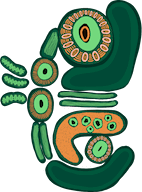
Protecting your teeth from being extracted
Reasons why you may need your teeth removed
Unfortunately, sometimes tooth damage can be too extensive for a tooth to be saved. Having a tooth removed is rarely the first treatment option, but there is only so much a filling or crown can do to restore and retain an existing tooth. When there is extensive decay, trauma or oral disease, the only solution may be to have the tooth extracted. Sometimes a tooth extraction is done for preventative reasons like overcrowding or to prevent future decline in oral or physical health.
How to protect your teeth from needing extraction
The single most important factor in retaining your teeth is to care well for them. Tooth enamel is the hardest substance in the human body, but is not immune to being weakened by decay or damage. Once a tooth is decayed and filled, it’s never as strong as it once was, which is why maintaining the integrity of a ‘whole’ tooth is so important.
What are you biting on?
Extensive fractures, cracks or dental trauma can also result in a tooth needing to be extracted. Sometimes it’s impossible to prevent accidents from happening, though a few things can help to lower the risk. Always wear a mouthguard when playing sports, even during practice sessions. Never use your teeth as ‘tools’ to open containers or packets, only use your teeth to smile and chew. If you become aware of clenching or grinding, it is important to visit your dentist to prevent cracks from forming, especially in teeth with existing fillings.
6 top tips to avoid tooth extraction
- Prioritise your teeth and oral health. Your mouth is the gateway to the rest of your body and has a major influence on overall health. Look after your teeth and gums and they’ll look after you!
- See your dentist regularly for check-ups, professional cleaning and fluoride treatments. Book regular six-monthly visits.
- Brush your teeth at least twice each day with fluoridated toothpaste. Replace your toothbrush every 3-4 months. Floss your teeth and gums daily.
- Brush your tongue daily – this will help to reduce the number and type of bacteria on your tongue.
- Eat a healthy diet and limit sweet foods and drinks. Avoid snacking between meals.
- Stop smoking cigarettes. Ask your GP and dentist for guidance.
Remember
Prevention is the key to reducing the likelihood of needing a tooth extraction. Book an appointment with your dentist to talk about ways to reduce your individual risk.
References
15.Toothbrushesinbathroom.20151129055222.pdf (jamdsr.com)
ColPro Search Result (colgateprofessional.com.au)
Periodontal (Gum) Disease | National Institute of Dental and Craniofacial Research (nih.gov)
